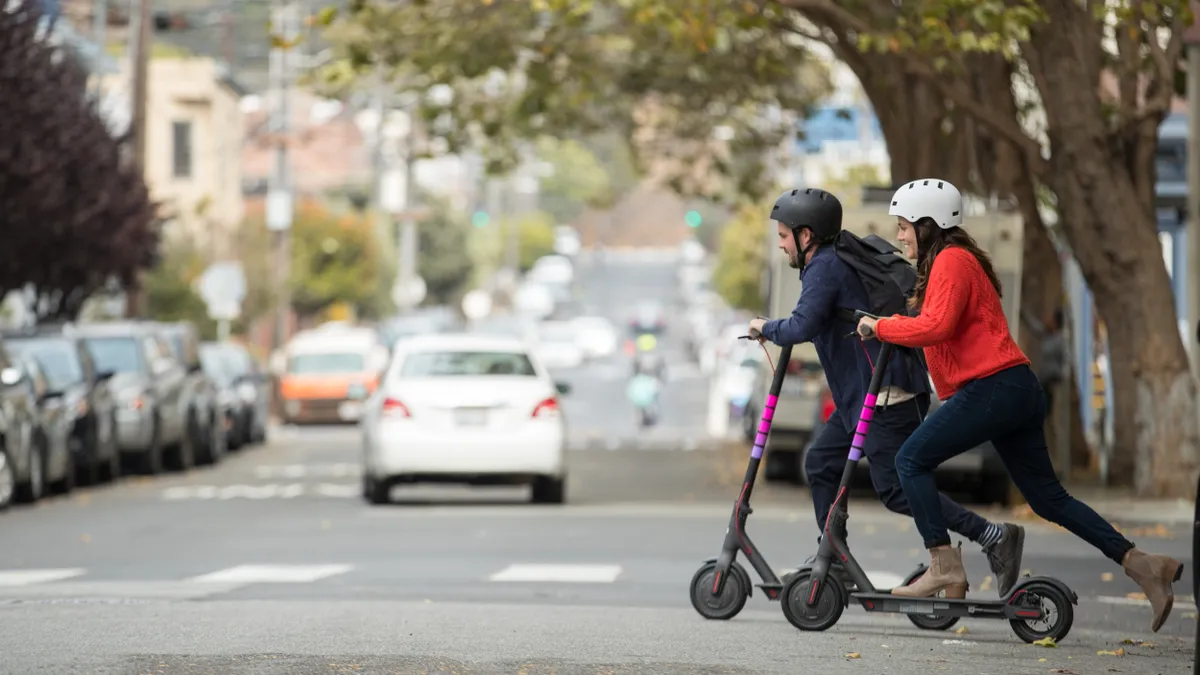Dive Brief:
- Members of New York City Council introduced a four-bill legislative package on Wednesday to legalize electric bikes and scooters.
- E-bike speeds would be capped at 20 miles per hour while scooter speeds would be capped at 15 miles per hour, and scooter riders will be subject to the same traffic laws governing cyclists. One of the bills would create a scooter pilot program, and another would establish a program to convert throttle-operated e-bikes to pedal-assist.
- The next step is for the council's transportation committee to schedule a hearing for the legislative package by early 2019.
Dive Insight:
Even though e-bikes currently are not legal in New York, they are still on the streets both for recreation and aiding employees, namely delivery workers. Last year Mayor Bill de Blasio ordered a crackdown on e-bikes and since then delivery workers reportedly experienced an increase in hefty citations for operating the vehicles.
Council members note that in addition to simply serving as alternative transportation, e-bikes and scooters are more affordable than other mobility options and provide greater equity, especially for low-wage workers. They said the vehicles will assist immigrants and people of color in particular, because a notable proportion of delivery jobs are filled by citizens within those demographic groups.
"Legalizing e-bikes is an essential step in giving delivery workers greater job stability and better working conditions ... The City should be doing everything in its power to support one of our growing industries and its workers," said Council Member Rafael Espinal, one of the bills' authors.
The bill language also suggests that areas considered transit deserts take priority when creating the scooter pilot program, which would enhance equity in the city.
Opponents of e-bikes and scooters say riders drive the vehicles erratically, decreasing safety on New York's already congested streets. The new bills do specifically address safety and require riders to follow laws. Those who don't will be subject to fines and vehicle impoundment.












